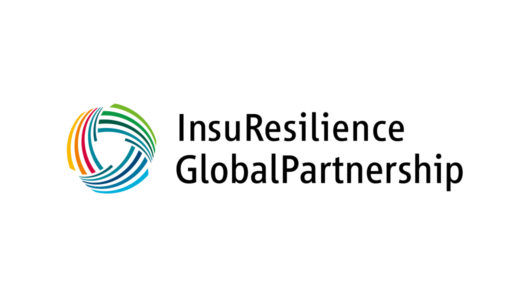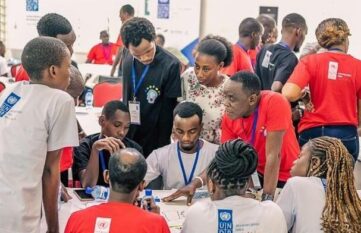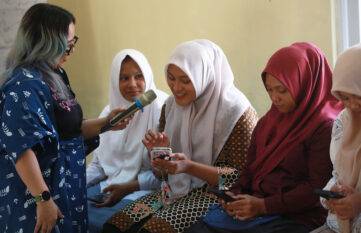more offers: In sub-Saharan Africa, the supply of digital solutions for agriculture increased by about 44 per cent per year between 2015 and 2018.

Digital transformation for sustainable agricultural systems
Climate change, biodiversity loss, the COVID-19 pandemic and the war of aggression on Ukraine – the qualitative and quantitative strain on our agricultural land and food has been increasingly intensified worldwide.
Globally, up to 828 million people are facing hunger daily. In order to feed the growing world population within planetary boundaries, it is essential to transform our agricultural and food systems. Crises affecting agriculture, and smallholder farmers in particular, need to be better understood, communicated and anticipated in order to increase the resilience of agricultural systems and to mitigate shocks as best as possible. The digitalisation of agriculture has the potential to support this transformation at the necessary pace, while making it sustainable and inclusive. Therefore, the opportunities of digital transformation in the agricultural sector are of greater importance than ever before.
Background
Digital applications can help increase agricultural productivity, conserve natural resources and biodiversity, and thus improve the resilience of agricultural systems. Likewise, the digitalisation of the agricultural sector can create attractive jobs and prospects, especially for young people and women along the entire value chain.
digital solutions: There are currently approximately 461 active digital applications in African agriculture (FAO & AfDB, 2021).
million farmers: An inclusive, digitally transformed agriculture could help achieve meaningful livelihood improvements for Africa’s 250 million smallholder farmers (FAO & ITU, 2022).
However, several areas of rapid digital transformation remain of concern. Limited access to technology, connectivity and high mobile data costs remain constraints to harnessing the potential of digital solutions for smallholder farmers. There is often a lack of digital infrastructure and digital skills (e-literacy and e-skills) to enable smallholder farmers to use digital applications independently.
The big challenge is to design and use digital systems and applications in a way that contributes to inclusive, greener, more efficient and resilient agricultural and food systems.
Farmers can benefit from new digital technologies in many ways and thus transform agricultural systems in a sustainable way:
-
Supporting innovation and start-ups in the field of digitalisation in agriculture helps to create jobs and promote entrepreneurship.
Projects
RECOVER – Farm Radio International
Farm Radio International used interactive radio to reach women and men from rural communities in seven countries with gender-responsive information on specific value chains such as soybean, cassava, groundnut and more. Done at a distance, using remote technologies to ensure the safety of everyone involved during the pandemic, the project also addressed hygiene, nutrition, gender equality, and climate change through radio programs.
WebsiteINATrace
is a digital, open-source, blockchain-based traceability solution with the aim to improve the economic situation of smallholder farmers. INATrace enables sustainable, trustworthy and transparent tracking of processes along a supply chain, with the goal of enabling fair payment especially for the people at the beginning of the chain.
WebsiteInsuResilience
protects farmers against weather-related damage through new insurance models. The design is based on weather data that is provided by satellites. If the quantity of rain exceeds or falls below certain limit values, a payout sum is provided.
Website





